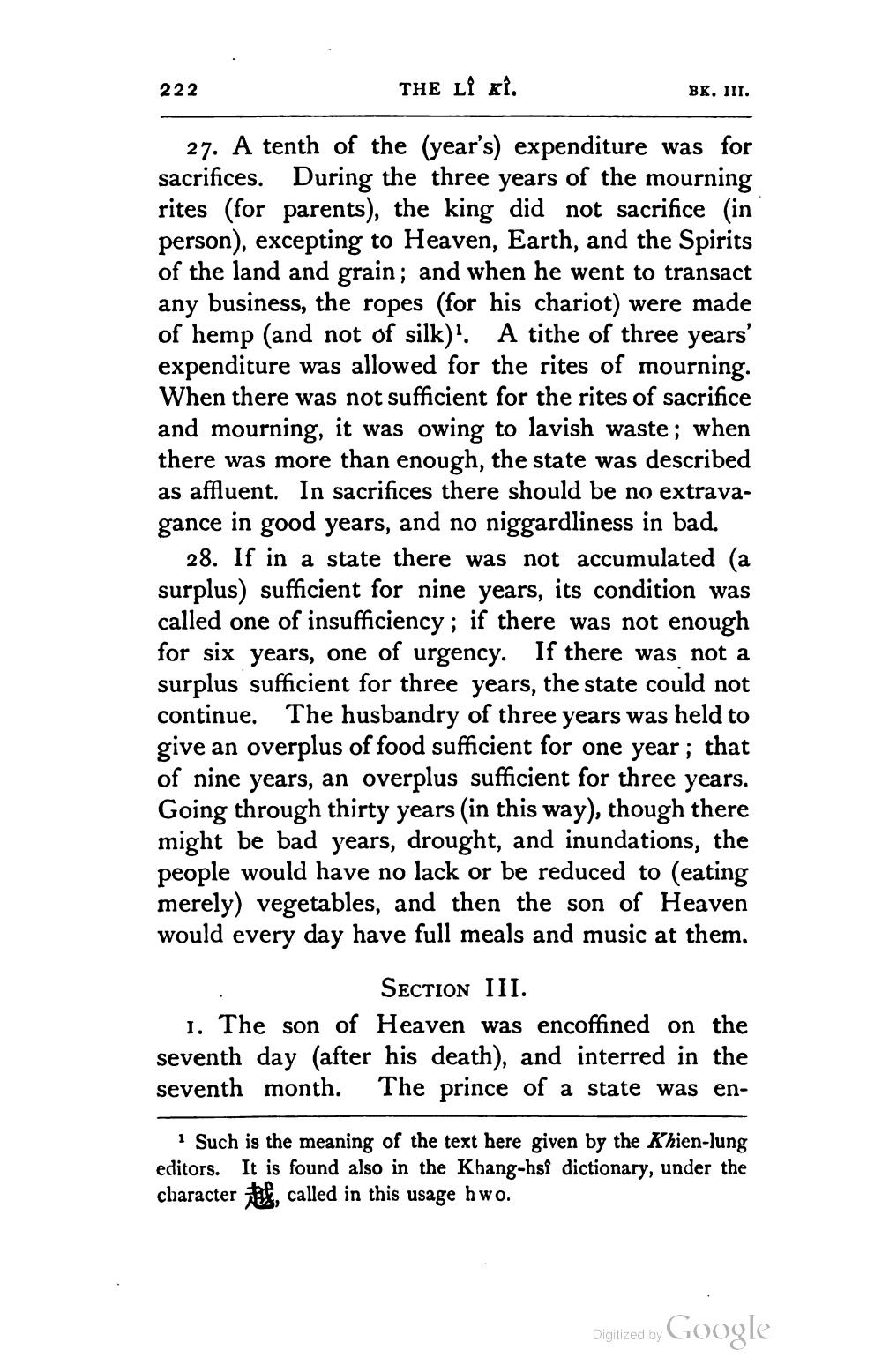________________
222
THE LÎ ki.
BK, III.
27. A tenth of the (year's) expenditure was for sacrifices. During the three years of the mourning rites (for parents), the king did not sacrifice (in person), excepting to Heaven, Earth, and the Spirits of the land and grain; and when he went to transact any business, the ropes (for his chariot) were made of hemp (and not of silk)! A tithe of three years' expenditure was allowed for the rites of mourning. When there was not sufficient for the rites of sacrifice and mourning, it was owing to lavish waste; when there was more than enough, the state was described as affluent. In sacrifices there should be no extravagance in good years, and no niggardliness in bad.
28. If in a state there was not accumulated (a surplus) sufficient for nine years, its condition was called one of insufficiency; if there was not enough for six years, one of urgency. If there was not a surplus sufficient for three years, the state could not continue. The husbandry of three years was held to give an overplus of food sufficient for one year; that of nine years, an overplus sufficient for three years. Going through thirty years in this way), though there might be bad years, drought, and inundations, the people would have no lack or be reduced to (eating merely) vegetables, and then the son of Heaven would every day have full meals and music at them.
SECTION III. 1. The son of Heaven was encoffined on the seventh day (after his death), and interred in the seventh month. The prince of a state was en
i Such is the meaning of the text here given by the Khien-lung editors. It is found also in the Khang-hsi dictionary, under the character , called in this usage hwo.
Digitized by Google




